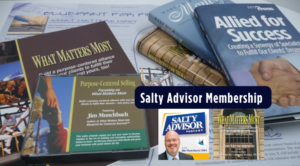Credit Crush to Be Debt Free
### Zoom Meeting Summary:
Weekly lecture for Jim’s personal finance course to introduce the credit crush assignment setup.
Key Takeaways
-
The secret class collaboration is to think about what being debt-free would mean for you

-
For the assignment, update your age to be 10 years older, add at least $10k in credit card debt, research interest rates, and add a car loan and mortgage
-
Link accounts in RightCapital if you want to use the budgeting tool, but transactions are private
-
Spending tracking assignment requires showing all transactions, so manual tracking in Excel may result in deductions
Topics:
Introducing Credit Crush Assignment
-
The credit crush assignment is a 2-week process to learn strategies for managing debt
-
This week is just setting up the scenario by adding debt to your financial plan
-
Next week will go through the strategies using the dashboard debt tool
Secret Class Collaboration
-
Think about what being 100% debt-free would mean to you and feel like
-
Jim shares a story about how he and his wife decided to pay off their mortgage after he earned extra income, despite his desire to invest the money
-
After becoming debt-free, he experienced an unexpected feeling of financial freedom
Assignment Instructions
-
Update your age to be 10 years older
-
Add at least $10k in credit card debt
-
Research interest rates you would pay
-
Determine minimum monthly payment
-
-
Add a car loan for your dream car
-
Research loan terms
-
-
Add a mortgage
-
Research home prices and down payments
-
Make sure your home ownership setting is updated from renting
-
Link property to mortgage
-
RightCapital Tools
-
Use the income tool to update your salary to an expected post-graduation amount
-
You can link external accounts for aggregation, but transactions remain private
-
Linking accounts allows you to use the budgeting tool
Spending Tracking Assignment
-
Manual tracking in Excel may result in deductions compared to apps that capture all transactions
-
Requirements:
-
Show all transactions
-
Categorize transactions
-
Provide a graph summary
-
Written reflection
-
Next Steps:
-
Complete credit crush setup in RightCapital
-
Post secret class collaboration reflection
-
Watch for next week’s lecture on credit crush strategies
Meet Billy and Sally

Part One: Researching Your Financial Future
In order to get full credit in this week’s assignment, you’ll need to research the following information:
-
Your Annual Income AFTER you graduate
-
Based on your major
-
Based on your industry
-
What is the average % of one’s income spent on Housing costs?
-
What are the basic categories needed in every household budget?
-
What are the average costs for each budget category?
-
Housing
-
Food
-
Utilities
-
Clothes
-
Taxes
-
Phone
-
Insurance
-
Maintenance
-
What are you missing?
-
Capstone Next Steps
This week, you’re going to assume you’ve already graduated and you’re earning whatever amount you hope to be earning once you’ve landed your dream job.
Your Income
-
What is the average income for your major?
-
What income are you using for your plan?
-
What % of your income are you using for your mortgage in this assignment?
Three Big Purchases for Next Week’s Assignment
Buy your dream house
Buy that car you always wanted
Rack up some serious debt on your New Credit Card
The Mortgage on Your Home
-
What % will go toward your Mortgage
-
Buy the biggest house you can afford to get full points.
-
Buy the smallest, cheapest house you can find if you want fewer points on this assignment.
-
-
Your Mortgage Information
-
Total Purchase Price of your Home
-
How Many Years for your mortgage
-
30 years
-
15 years
-
-
Your New Home, and Mortgage
-
Why did you choose your house
-
How did you come up with that mortgage payment
-
What Interest Rate are you using on your mortgage?
-
How many years is your mortgage?
Your New Ride
-
Why did you choose that car?
-
How did you come up with that financing?
-
What is the interest rate on your car loan?
Your Credit Card
-
What is the balance on your “pretend” credit card for this week’s assignment — I’m looking for anywhere from $5k to $25k for most students
-
How did you come up with that interest rate? (I’m looking for any where from 12% — 30%)
4 Screenshots to Include from Your Planning Portal

-
Income
-
Mortgage Loan
-
Car Loan
-
Credit Card Account
Write Your Article
I don’t care how many words, but do include a title, screen shot of week 5 quiz, and your comments addressing each element above.
Now that you’ve moved out on your own, invested in your dream house, purchased your cool ride, and racked up some credit card debt, let’s learn a few debt payment strategies to help you move toward your goal of becoming a millionaire by age 50.
Final Steps
— Add Wk 5 Quiz Screenshot
— Add Wk 5 Class Collaboration [Comment] Screenshots:
In addition to the class collaboration item listed below, be sure to include a screenshot for this week’s “secret” class collaboration component(s) as outlined in this week’s Zoom Meeting.








